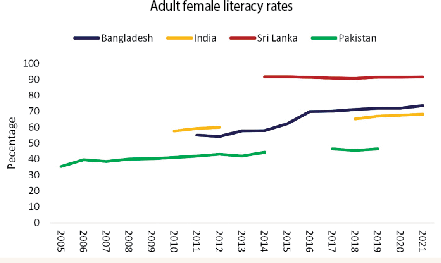
This has been a year when the Covid-19 pandemic caused many to be cut off from their families, work, social lives, and even, at times, their supply of food. The use of evidence-based planning for a sustainable food system is more relevant today than ever.
The Food and Agriculture Organisation (FAO) theme for the 2020 World Food Day on ‘growing, nourishing and sustaining together’ is apt. We need to reassess the importance of the food system in our lives, and how we can make it stronger.
Pakistan struggles with poverty, food insecurity and malnutrition. Despite the soil fertility and one of the largest contiguous irrigation systems, several segments of society face challenges in gaining stable access to a healthy and balanced diet. For vulnerable communities, setbacks like the Covid-19 pandemic, the floods, or the arrival of the desert locusts, make it even harder.
One of the first things necessary for a strong and resilient food system is reliable data and information. Careful analysis of these can then lead to better monitoring, understanding and action.
Only 35 per cent of the population has access to safely managed water, free of bacterial contamination that causes repeated gastrointestinal upsets and consequent failure to absorb nutrients in food
Pakistan’s Ministry of National Food Security and Research intends to monitor the situation using the food security and nutrition information system (FSNIS), established in 2019 with the technical support of FAO. It can help answer questions like, do we need to import or grow more? And, is the population consuming a balanced diet?
In 2020, Pakistan had to import wheat to ensure sufficient supply. Inadequate opening stocks, difficulties in the timely movement of agricultural labour during lockdowns, low productivity, or missing targets by the government-led wheat procurement program could all have been contributing to this. During the Covid-19 the FNSIS was particularly valuable to monitor the impacts of government initiatives on the food system and to identify disruptions in the food supply chains.
A web-based dashboard, a fortnightly bulletin on food prices in over 17 markets across the country, and a bi-annual Pakistan Food Forecast Report are among the information products coming from the FSNIS to help monitor supply and demand and food market functionality, and to better understand the four dimensions of food security (availability, access, stability and utilisation) in the country. Current data points to important inequalities between urban and rural areas, and also among provinces, socio-economic groups and genders. A deeper analysis is available in Pakistan Overview of Food Security and Nutrition (POFI).
Pakistan is one of the slowest countries in South Asia to improve on statistics relating to nutrition, with 40.2 per cent of children under-five stunted, 17.7pc wasted and 28.9pc underweight.
POFI also takes a look at progress in addressing different drivers and determinants of food insecurity and malnutrition, rather than just overall results for the Sustainable Development Goal 2 indicators. An example is Pakistan’s progress with supplying clean water, adequate sanitation and hygiene to its people. POFI 2019 reported that only 35pc of the population has access to safely managed water, free of bacterial contamination that causes repeated gastrointestinal upsets and consequent failure to absorb nutrients in food. With information like this, it is easier to understand why ending malnutrition is such a challenge, no matter how much food is available, or how diverse, fresh and balanced this food supply is.
At times, data can appear confusing. This is where consideration of data collection methods, and the impact of the exact timing of surveys, is so important. Country-level results can also mask considerable variation by province and by district. When considering assistance to bolster the food system in disaster-affected areas of the country, we must realise that rapid needs assessments conducted at the time of disasters usually only assess obviously-affected places, thus producing high scores for indicators of food insecurity, which are not applicable to the whole province or country. Nevertheless, these assessments have their place and can guide short-term and urgent humanitarian actions where they are needed most.
FAO is working closely with governments around the world, including in Pakistan, on more effective multi-criteria data analysis including geographic information system methods, to pinpoint where investments in resolving rural poverty, food insecurity and malnutrition could be most effective. This Hand-in-Hand initiative, as it is known, can multiply the benefits of an FSNIS. We can look forward to more targeted and evidence-based development initiatives that address the root causes of hunger in Pakistan. Together we can grow, nourish and sustain Pakistan into a future without hunger.
The writer is FAO-UN Policy Officer
Published in Dawn, The Business and Finance Weekly, October 26th, 2020

































